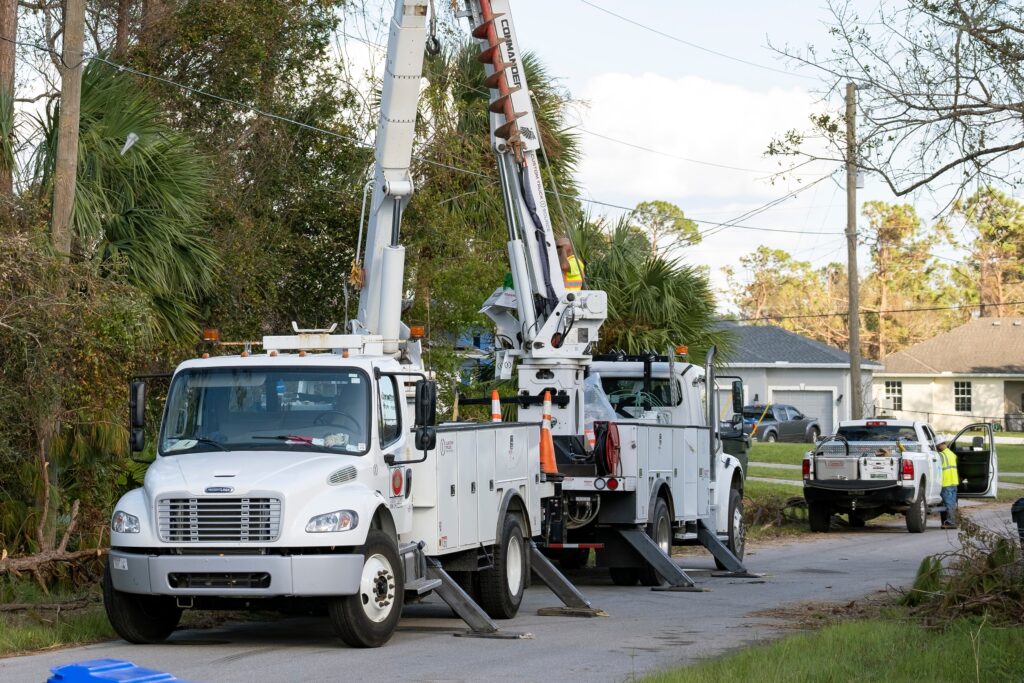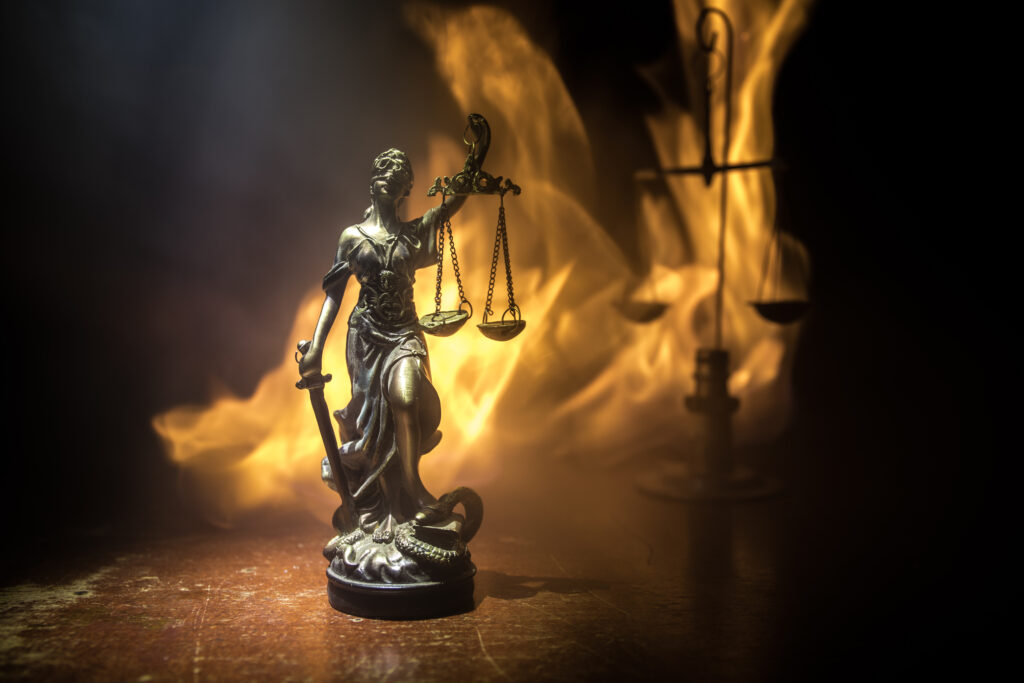California has strict laws requiring utility companies to prevent wildfires. Specifically, California Public Utilities Code Section 451 mandates that utilities operate safely to protect the public. General Order 95 sets rules for maintaining power lines, including keeping vegetation clear and repairing aging equipment. Senate Bill 901 requires utilities to submit wildfire mitigation plans.
Despite these laws, utility companies often violate them by neglecting maintenance, failing to trim trees, or not shutting off power during high-risk conditions. These violations have caused devastating fires, such as the 2018 Camp Fire, which was linked to Pacific Gas & Electric’s faulty equipment.
A skilled California wildfire attorney can help victims of property or business losses by investigating the fire’s cause, gathering evidence, and negotiating for fair compensation. If necessary, they can take the case to court to hold the utility company accountable and ensure that victims recover their financial losses due to the wildfire.
Laws that Utility Companies in California Must Follow and How They Violate These Laws

California has strict laws requiring utility companies to take precautions to prevent wildfires, especially in areas prone to dry conditions and high winds. These laws are designed to ensure that power lines and other electrical equipment do not spark fires that may destroy homes, businesses, forests, and entire communities. However, despite these regulations, some utility companies have been found guilty of violating them, leading to devastating consequences.
One of the key laws that utility companies must follow is California Public Utilities Code Section 451, which requires them to maintain safe operations and take all reasonable steps to prevent their equipment from causing harm. This includes trimming trees near power lines, inspecting aging infrastructure, and shutting off power during dangerous weather conditions. The California Public Utilities Commission (CPUC) enforces these rules and has the authority to fine companies that fail to comply. Additionally, California Senate Bill 901, passed in 2018, requires utility companies to develop wildfire mitigation plans outlining how they will reduce fire risks and improve safety measures.
Another critical regulation is General Order 95, which establishes safety standards for overhead power lines. It mandates that companies maintain proper clearance between electrical equipment and surrounding vegetation to prevent sparks from igniting fires. Utility companies must also inspect and repair damaged equipment, ensuring that old or faulty power lines do not become fire hazards. Furthermore, Public Resources Code Section 4293 requires utilities to keep vegetation clear within specified distances from power lines in fire-prone areas.
Despite these laws, some utility companies have repeatedly violated them, leading to catastrophic wildfires. One of the most infamous examples is Pacific Gas & Electric (PG&E), which was found responsible for multiple deadly fires, including the 2018 Camp Fire that destroyed the town of Paradise and killed 85 people. Investigations revealed that PG&E failed to properly inspect and maintain its aging power lines, allowing a faulty transmission tower to spark the fire.
Other utility companies have also been cited for safety violations, including Southern California Edison and San Diego Gas & Electric. Some violations include failing to trim trees near power lines, neglecting equipment repairs, and not shutting off power during extreme fire conditions.
Important Evidence in a California Wildfire Claim or Lawsuit
When filing a wildfire claim or lawsuit directly against a utility company in California, certain types of evidence are crucial to proving liability and obtaining compensation. These lawsuits go beyond standard insurance claims and aim to hold the utility company directly responsible for the negligence that led to the wildfire. To succeed in court, plaintiffs (the wildfire victims) must present strong evidence that links the utility company’s actions – or failure to act – to the fire’s cause and the resulting damages.
One of the most important pieces of evidence in a wildfire lawsuit is official investigation reports. Agencies such as Cal Fire (California Department of Forestry and Fire Protection) and the California Public Utilities Commission (CPUC) conduct detailed investigations after major wildfires. Their reports can identify the cause of the fire, including whether a utility company’s power lines, transformers, or other equipment were involved. If an agency determines that a company’s faulty equipment sparked the fire, this can serve as key evidence in the lawsuit.
Another critical type of evidence is maintenance and inspection records from the utility company. These documents show whether the company performed regular inspections and maintenance on power lines and electrical infrastructure. If records indicate that equipment was outdated, damaged, or poorly maintained, it can demonstrate negligence. Similarly, evidence that the company ignored known risks – such as reports of failing equipment or warnings about high fire danger – can strengthen a claim.
Eyewitness testimony and expert analysis also play an important role. Witnesses who saw sparks, explosions, or downed power lines at the fire’s origin can provide valuable firsthand accounts. Additionally, fire experts and electrical engineers can analyze the evidence and testify about how the utility company’s failures directly contributed to the wildfire. Their professional opinions can help establish liability in court.
Another significant category of evidence includes weather conditions and power shutoff decisions. Utility companies are required to shut off power in extreme fire conditions to prevent sparks from igniting dry vegetation. If a company failed to shut off power despite high winds and dry conditions, it may be held responsible for the fire.
Finally, financial records and internal communications from the utility company can reveal whether executives prioritized profits over safety by delaying equipment upgrades or ignoring wildfire risks. This type of evidence can prove reckless behavior, increasing the chances of a successful lawsuit.
Recovering Compensation for Individual Property and Business Losses in a California Wildfire Case
Individuals and businesses that suffer losses in a California wildfire can recover compensation through a claim or lawsuit. This compensation can help cover the financial impacts of the fire, including damage to property, lost income, and other expenses. If the wildfire resulted from a utility company’s negligence, victims may have legal grounds to seek damages beyond what their insurance covers.
One of the main recoverable losses is property damage reimbursement. This includes the cost of repairing or rebuilding homes, businesses, and other structures destroyed or damaged in the fire. Victims can also recover the value of personal belongings, such as furniture, electronics, clothing, and jewelry. For businesses, this may include office equipment, inventory, and tools necessary for operations.
Other key categories of damages are lost income and business losses. If a wildfire forces a business to close, the owner can recover the profits lost during the shutdown. Employees who lose income because their workplace was destroyed or shut down temporarily may also be eligible for compensation. In some cases, businesses can recover losses due to supply chain disruptions, loss of customers, or other wildfire-related interruptions.
Victims can also seek compensation for additional living expenses (ALE). If a home is destroyed or becomes uninhabitable due to the wildfire, claims or lawsuits may cover the cost of temporary housing, food, and other necessary expenses. This helps families maintain stability while rebuilding their lives.
In cases where a utility company is found guilty of gross negligence or reckless behavior, victims may be awarded punitive damages. These damages are meant to punish the company for wrongdoing and discourage similar actions in the future.
By filing a claim or lawsuit, individuals and businesses can work toward recovering the financial losses they suffered in a devastating wildfire.
Will a California Wildfire Claim Need to be Litigated?

Determining whether a California wildfire case for individual property or business losses will need to be litigated depends on several factors, including the cause of the fire, the extent of the damages, and whether the at-fault utility company is willing to offer a fair settlement. Victims may pursue compensation through a settlement or a lawsuit.
Before deciding to litigate, victims typically consult an experienced California wildfire attorney who will investigate the case. This involves reviewing fire investigation reports, utility maintenance records, and any evidence showing negligence. The attorney will also assess the damages, including property destruction, lost income, and business losses. If the at-fault utility company refuses to make a fair settlement offer, litigation may be necessary.
The litigation process begins with filing a lawsuit in court. The plaintiff (the victim) files a complaint against the defendant (such as a utility company) outlining how the fire occurred, the damages suffered, and the compensation being sought. The defendant then has the opportunity to respond, either denying responsibility or attempting to dismiss the case.
After the lawsuit is filed, the case enters the discovery phase, where both sides exchange evidence and information. This may include depositions, where witnesses, experts, and company representatives give sworn testimony. Fire investigators and engineers may also provide expert opinions on how the fire started and whether utility company negligence was involved.
Many wildfire cases are settled before trial through negotiations or mediation. The defendant may offer a settlement to avoid a lengthy court battle. If the victim agrees to the amount, the case is resolved without going to trial. However, if the parties cannot agree, the case proceeds to court.
During the trial, both sides present their arguments before a judge or jury. The plaintiff’s attorneys present evidence of negligence and damages while the defense tries to refute these claims. After hearing the case, the judge or jury decides whether the defendant is liable and determines the amount of compensation to award the plaintiff.
Litigation can be a long and complicated process, but it may be necessary when victims are denied fair compensation. A successful case can help individuals and businesses recover financially and hold negligent utility companies accountable.
How Can a California Wildfire Lawyer Help with Your Wildfire Claim?

A knowledgeable California wildfire attorney can be a valuable asset for victims seeking compensation for their losses. Wildfire cases can be complicated, especially when they involve large utility companies, government agencies, or other responsible parties. An experienced attorney understands the legal process, knows how to gather strong evidence, and can negotiate for a fair settlement or take the case to trial if necessary.
One of the most important ways a wildfire lawyer can help is by investigating the cause of the fire. This involves reviewing official reports from agencies like Cal Fire, examining maintenance and safety records from utility companies, and working with fire experts to determine if negligence played a role. If a power line, transformer failure, or other electrical issue caused the fire, the lawyer can use this evidence to build a strong case against the responsible party.
A wildfire attorney can also calculate the full extent of damages. Many victims suffer losses beyond what insurance covers, including property damage, lost income, emotional distress, and additional living expenses. A lawyer will assess all financial and emotional effects of the fire to ensure victims seek the maximum compensation they deserve. For business owners, an attorney can help recover lost profits and other economic damages resulting from the wildfire.
Another crucial role of a wildfire lawyer is handling negotiations with defendants. Negligent utility companies and their legal representatives often try to minimize payouts and may attempt to deny responsibility or offer low settlements. An attorney with experience in wildfire claims knows how to push back against these tactics and fight for fair compensation. If a reasonable settlement cannot be reached, the lawyer will be prepared to take the case to court.
If litigation becomes necessary, a wildfire lawyer will guide the victim through the legal process, handling court filings, gathering evidence, and representing the client in hearings or at trial. They will use expert testimony, eyewitness accounts, and legal arguments to prove negligence and secure fair compensation.
Additionally, an experienced attorney understands state and federal laws related to wildfires, including utility regulations and liability standards. This knowledge helps them navigate complicated legal issues and hold negligent parties accountable.
Ultimately, retaining an experienced California wildfire lawyer increases the chances of securing fair compensation and helps victims focus on rebuilding their lives after a devastating fire.
Contact a Skilled California Wildfire Attorney Today
If you sustained personal property or business losses in a California wildfire that a negligent utility company caused, an experienced attorney can handle every aspect of your case for you. They will investigate the cause of the fire, file a claim or lawsuit against the responsible utility company on your behalf, and fight for the compensation you deserve.